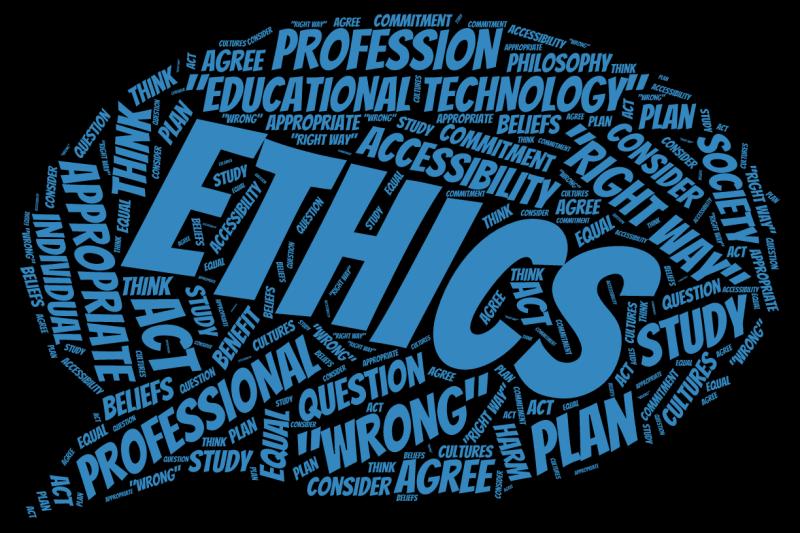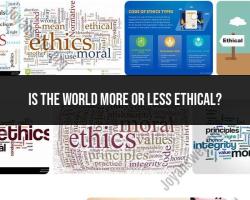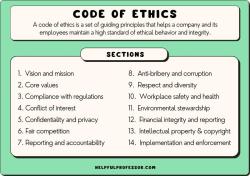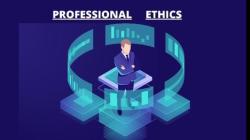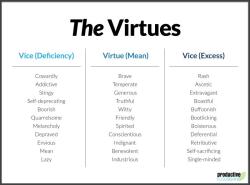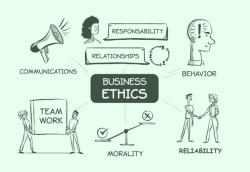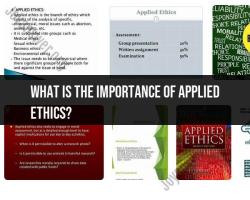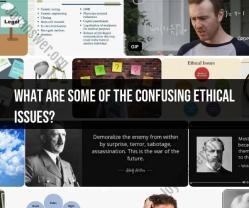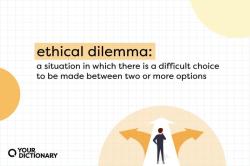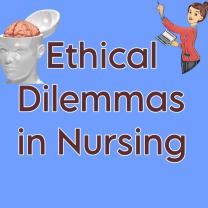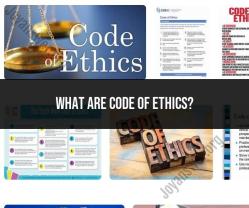What does online ethics mean?
Online ethics, also known as cyber ethics or internet ethics, refers to the ethical principles and standards that guide individuals' behavior and interactions in the online or digital environment. It involves understanding and applying moral values and responsible conduct when engaging with digital technologies, online communities, and the internet as a whole.
Key aspects of online ethics include:
Respect for Others:
- Treating others with respect and courtesy in online interactions. This includes refraining from cyberbullying, harassment, or any form of online behavior that can cause harm to individuals.
Privacy and Security:
- Respecting the privacy of others and taking measures to protect one's own privacy online. This involves being cautious about sharing personal information and using secure practices to safeguard data.
Integrity and Honesty:
- Upholding principles of honesty and integrity when creating and sharing digital content. This includes avoiding plagiarism, providing accurate information, and being transparent about one's identity online.
Digital Citizenship:
- Acting as a responsible digital citizen by contributing positively to online communities. This involves promoting constructive discussions, helping combat online misinformation, and being aware of the impact of one's online actions on the broader digital society.
Cybersecurity Awareness:
- Being aware of cybersecurity threats and practicing safe online behaviors. This includes using strong passwords, keeping software up-to-date, and being cautious about phishing attempts and other cyber threats.
Intellectual Property:
- Respecting intellectual property rights by avoiding unauthorized use or distribution of digital content, including images, videos, and written works.
Netiquette:
- Following proper online etiquette, or "netiquette," which involves using polite and courteous behavior in digital communication, forums, and social media.
Digital Literacy:
- Developing digital literacy skills to critically evaluate information found online. This includes the ability to discern between reliable and unreliable sources and being aware of the potential for misinformation.
Societal Impact:
- Considering the broader societal impact of one's online actions. This involves being mindful of how online activities can contribute to or detract from the well-being of individuals and communities.
Legal Compliance:
- Adhering to applicable laws and regulations related to online activities, such as copyright laws, data protection laws, and anti-cybercrime laws.
In summary, online ethics encompasses the moral principles and responsible behaviors individuals should follow when navigating the digital landscape. It promotes a positive and respectful online culture, emphasizing the importance of ethical decision-making in the digital age.
What does the term "online ethics" refer to in various contexts?
"Online ethics" is a broad term encompassing the moral principles and guidelines that apply to our digital behavior and interactions. It tackles the complex considerations we encounter in the online world, addressing issues like:
Privacy and data protection:
- How do we collect, store, and use personal information online ethically?
- What responsibilities do individuals and companies have in protecting user data?
- How can we balance the benefits of technological advancements with the right to privacy?
Freedom of expression and censorship:
- Where do we draw the line between free speech and harmful content online?
- How can we combat online hate speech, misinformation, and disinformation?
- What role should platforms play in moderating content and balancing diverse viewpoints?
Cybersecurity and online safety:
- How can we protect ourselves and others from cyberattacks, scams, and online threats?
- What responsibilities do individuals and platforms have in maintaining a safe online environment?
- How can we promote responsible use of technology and combat cyberbullying and harassment?
Intellectual property and authorship:
- How do we respect and protect the intellectual property of others online?
- What constitutes plagiarism and copyright infringement in the digital realm?
- How can we give proper attribution and credit for online content?
Social media and digital interactions:
- How can we be respectful and responsible in our online interactions with others?
- What constitutes cyberbullying and how can we combat it?
- How can we promote positive and ethical online communities?
Digital divide and accessibility:
- How can we ensure that everyone has equal access to the benefits of the internet and technology?
- How can we bridge the digital divide and combat online discrimination?
- How can we make online platforms and content more accessible for people with disabilities?
Emerging technologies and AI:
- What are the ethical implications of artificial intelligence and other emerging technologies online?
- How can we ensure that technology is used for good and does not harm individuals or societies?
- How can we develop ethical frameworks for the responsible development and use of AI?
These are just some examples of the diverse contexts in which online ethics comes into play. The specific issues and nuances can vary depending on the platform, technology, and situation. Ultimately, navigating online ethics requires critical thinking, awareness, and a commitment to acting responsibly and ethically in the digital world.
Feel free to ask if you have any further questions about specific aspects of online ethics or want to explore a particular context in more detail. I'm always happy to help navigate the complexities of this evolving field!
